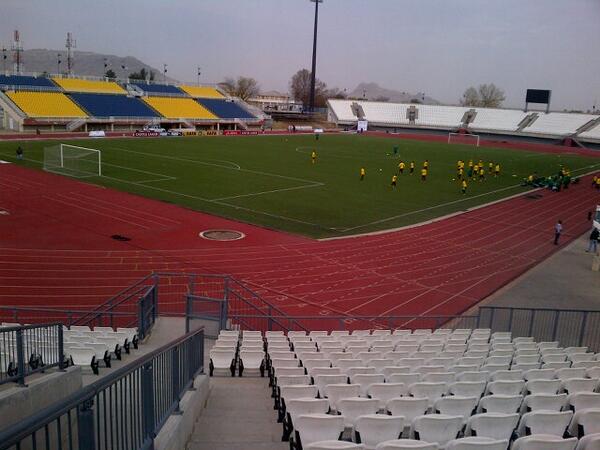Theko Tlebere
The recent 7-0 defeat of Likuena, Lesotho’s national football team, to Morocco in the 2025 Africa Cup of Nations qualifiers starkly underscores the urgent need for our government to prioritise sports development. This devastating loss not only reveals gaps in the talent pipeline but also highlights the systemic neglect of sports infrastructure and policy in Lesotho. Football, the most popular sport globally, holds untapped potential as an economic driver for national development. Prime Minister Sam Matekane’s government must take concrete steps to invest in football, particularly in infrastructure, to elevate Lesotho’s presence on the continental stage and harness its socioeconomic benefits.
Football is not merely a sport; it is an economic powerhouse. Countries like Botswana and Zambia have successfully leveraged sports infrastructure and football development to spur economic growth, foster national pride, and improve citizens’ quality of life. For instance, Botswana’s world-class facilities, including the Francistown Stadium, have attracted regional and international events, significantly boosting tourism and local economies. Similarly, Zambia’s investments in grassroots football, paired with infrastructural enhancements, led to their historic victory at the 2012 Africa Cup of Nations—a triumph that united the nation and showcased its sporting potential to the world. Lesotho can adopt these successful strategies by investing in stadiums, training facilities, and football academies nationwide, not just in Maseru. Well-planned sports infrastructure can play a dual role: developing elite athletes while hosting regional tournaments that attract visitors, create jobs, and generate business opportunities.
Prime Minister Matekane and his deputy, Justice Nthomeng Majara have undertaken numerous diplomatic missions worldwide, diligently forging partnerships and seeking investment opportunities. However, these trips often overlook the critical development of sports infrastructure, despite its vast diplomatic and economic potential. Football serves as a universal language that transcends borders, and international collaborations in sports could yield significant benefits for Lesotho. For example, Morocco—Lesotho’s recent opponent—has invested heavily in football infrastructure and development, transforming their national team into a continental powerhouse. Collaborating with countries like Morocco, which has expertise in establishing state-of-the-art facilities, could equip Lesotho with the technical knowledge necessary to modernise its own sports infrastructure.
The Lesotho Football Association (LEFA) has made significant strides in football development through grassroots initiatives and by enabling Likuena to compete internationally. However, the responsibility for advancing the sport cannot rest solely on LEFA. The government must collaborate with LEFA, providing the crucial financial and logistical support needed to enhance these efforts. Countries like Zambia have demonstrated the benefits of public-private partnerships in football development. By aligning the goals of the government, national football associations, and corporate sponsors, Zambia has created a sustainable football ecosystem that benefits both players and the economy. Lesotho should adopt a similar strategy, with the government taking the lead in policy formulation, funding, and infrastructure development.
The following five issues need to be considered by our government;
1. Establish a National Sports Development Fund: Create a dedicated fund for sports infrastructure and talent development, ensuring resources are allocated transparently and effectively.
2. Build Regional Football Academies: These academies would identify and nurture young talent while serving as community hubs for sports and recreation.
3. Upgrade Existing Facilities: Transform dilapidated football grounds across the country into modern, multi-purpose stadiums capable of hosting international matches.
4. Leverage International Partnerships: Collaborate with countries excelling in sports development to gain technical expertise and investment in infrastructure.
5. Integrate Sports into National Development Plans: Recognise football as a vital sector in economic and social policy, incorporating it into broader strategies for youth development, tourism, and health.
Football has the power to unite nations, uplift communities, and empower individuals. In Lesotho, where unemployment and poverty rates remain alarmingly high, football could be a beacon of hope and opportunity. Nationally developing this sport would improve Lesotho’s performance on the field, create jobs, foster national pride, and position the country as a hub for regional football events. The disappointment experienced by Likuena in Morocco should serve as a wake-up call for all stakeholders. It is time for Prime Minister Matekane’s government to recognise the transformative power of football and invest in its potential. By doing so, Lesotho can reclaim its dignity on the football pitch and harness the sport as a vehicle for national development. The ball, quite literally, is in the government’s court. The future is NOW!

Your Trusted Source for News and Insights in Lesotho!
At Newsday Media, we are passionate about delivering accurate, timely, and engaging news and multimedia content to our diverse audience. Founded with the vision of revolutionizing the media landscape in Lesotho, we have grown into a leading hybrid media company that blends traditional journalism with innovative digital platforms.












